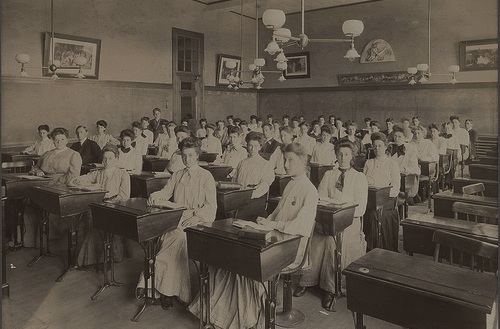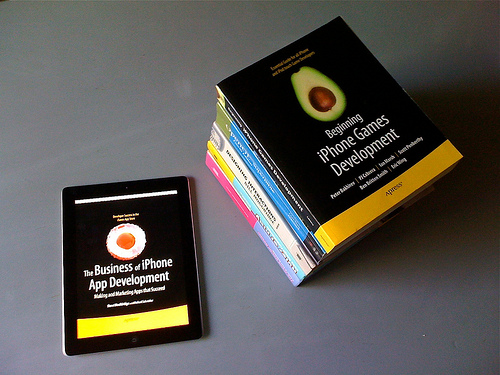Your eTextbook knows if you studied or not

Homework and studying are the stuff of legends. Almost everyone moans when they find out they have to do it, and feel great when it's finished. There are elaborate networks of student cheating, elaborate excuses of how the dog ate it or the computer deleted it and even the occasional diatribe against the worth of homework to try and get out of it. Teachers spend a ton of time grading it and students spend twice that avoiding it. Some education reformers have tried to eliminate it, while others have focused on better after-school programs to help students do it well.
But the questions are still looming in every school, no matter the subject.
Did you do your homework? Did you study for the test?
And up until now, the only person who could answer was the student. You have the paper or you don't. When, where and how you got it done aren't part of the equation. But now, it can be.

eTextbooks
An Atlantic article digs into CourseSmart, a series of online and eTextbooks that can track a lot of information about how students do their homework and the implications it has for the future of education.
They call it the "Engagement Index."
"A professor can track the a student's study habits, by looking at what pages of the book were opened, when, and how they took notes. "It’s Big Brother, sort of, but with a good intent," says Tracy Hurley, the dean of Texas A&M's school of business, which has started testing the technology along with eight other schools."
It's big brother, sort of, but with a good intent. That one stings a bit.
The promise
The idea is that an eTextbook that tracks when a student opens his/her textbook, how long they spend reading and on what pages, and correlates that with their homework results and eventual grades will give teachers and professors insight into what makes for a successful student. With that knowledge, educators can intervene early to help students who are showing poor study habits, or pick out problematic parts of the textbooks that need to be changed to better work for students.
It's an approach to understanding the correlation between study habits and results that comes from the way we think about "big data." If you have a big enough set of data, trends emerge and if we can tweak approaches, whether that is in marketing or education, we can make wide changes that move the averages closer to our desired result.
In theory, it's a great way to find out what works and do more of it as well as understand who is struggling and get them personal help. The Atlantic article talks about a few anecdotes where the professor saw that a student wasn't spending a lot of time studying based on their low "engagement index." In response, the professor set up meetings with that student to help.
The problem
The problem comes in the reality of study habits and learning styles. The examples in the article actually end up with quotes from those students who had low engagement indexes. They actually had good grades, just not study habits that fit with the CourseSmart tracking system. They did their homework and did well on tests. The disconnect was in how they prepared for and executed their preparation. One student only studied the night before the test. Another said she takes notes on paper and studies outside of the textbook, only reading the parts she thinks are important. Not to mention all of the learning styles that are more visual or tactile that don't mesh well with textbooks, eBooks or otherwise.
It's a big problem that brings up some big questions: Are CourseSmart textbooks and the engagement index trying to standardize study habits? If so, is that beneficial? Does it matter how much time students spend reading a textbook? How closely do grades tie to study habits in the first place?
The ideal and the danger
The article closes this way:
"In an ideal world, the aggregate data would help textbook authors to create better learning materials and give educators insight into how much these very expensive supplemental materials are actually helping the learning experience. But since when has data ever been used just for good?"
Images courtesy of City of Boston Archives and Abstract Machine via flickr

0 comments